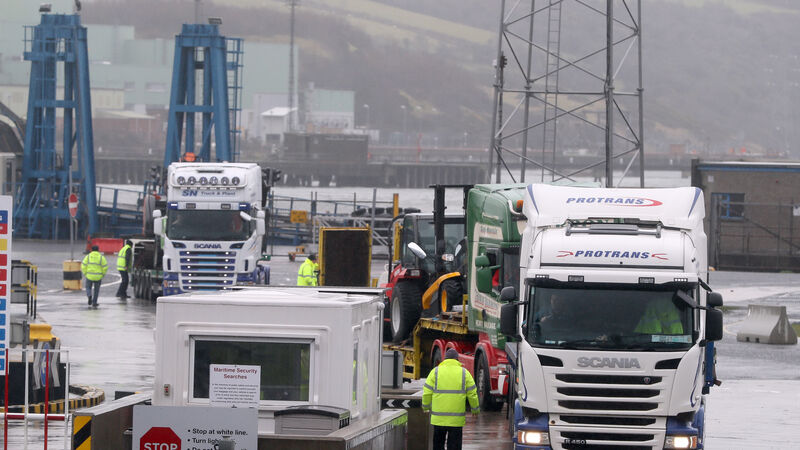John Whelan: How one deal could lift tension at Irish Sea border

Grace periods are currently in place for customs checks on parcels and medicines, as well as for supermarket goods and plants, from Britain to the North.
Edwin Poots, the North's de facto first minister, has continued his posturing over the Northern Ireland Brexit protocol but it will be hard negotiations in Brussels and London that will determine the outcome of any new terms for the Irish Sea border.
Business leaders north and south of the island meanwhile are getting on with it.












